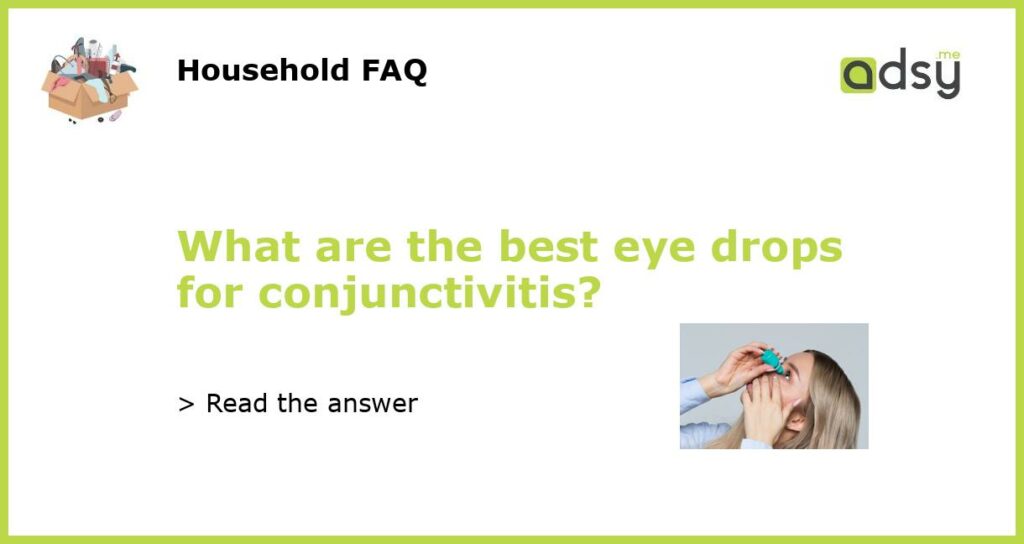Understanding Conjunctivitis and Its Symptoms
Conjunctivitis or pink eye is an eye condition that occurs due to inflammation of the conjunctiva – a thin, clear tissue that covers the white part of the eye. This inflammation can be caused by a bacterial or viral infection, allergy, or irritant exposure. The symptoms of conjunctivitis include redness, itching, watering, and discharge from the eye. Some people also experience swelling, pain, and blurred vision.
Types of Eye Drops for Conjunctivitis
Eye drops are often used to relieve the symptoms of conjunctivitis. The type of eye drops you need depends on the cause of conjunctivitis. For viral conjunctivitis, treatment involves using antiviral eye drops. Bacterial conjunctivitis is treated with antibiotic eye drops. In case of allergic conjunctivitis, antihistamine or mast cell stabilizer eye drops are used. Lubricating eye drops can be used to relieve the symptoms of conjunctivitis caused by irritants or dry eyes.
The Best Eye Drops for Conjunctivitis
When it comes to choosing the best eye drops for conjunctivitis, your doctor is the best person to guide you. They will prescribe eye drops based on the cause and severity of your conjunctivitis. Some commonly prescribed eye drops for conjunctivitis include Ciloxan (ciprofloxacin), Zymar (gatifloxacin), and Vigamox (moxifloxacin) for bacterial conjunctivitis. For viral conjunctivitis, your doctor may prescribe Trifluridine. Allergic conjunctivitis is treated with Cromolyn sodium, Alcaftadine, and Azelastine. For dry eyes-related conjunctivitis, artificial tear drops like Refresh and GenTeal can be used
Over-the-Counter Eye Drops for Conjunctivitis
Over-the-counter eye drops can be used to relieve mild symptoms of conjunctivitis, but they may not be effective in treating the underlying cause. Artificial tears, like Systane and Blink Tears, can be used to relieve dry eyes associated with conjunctivitis. Antihistamine eye drops, like Zaditor and Visine-A, can provide relief from itching and redness associated with allergic conjunctivitis.
Precautions and Risks with Eye Drops for Conjunctivitis
Using eye drops incorrectly can cause further irritation and damage to the eye. Always follow the instructions provided by your doctor or on the package. Do not use eye drops prescribed to someone else or stop using them before completing the course. Also, avoid touching your eyes with dirty hands or sharing eye makeup and contact lenses. If you experience severe symptoms or the condition does not improve, consult your doctor.






